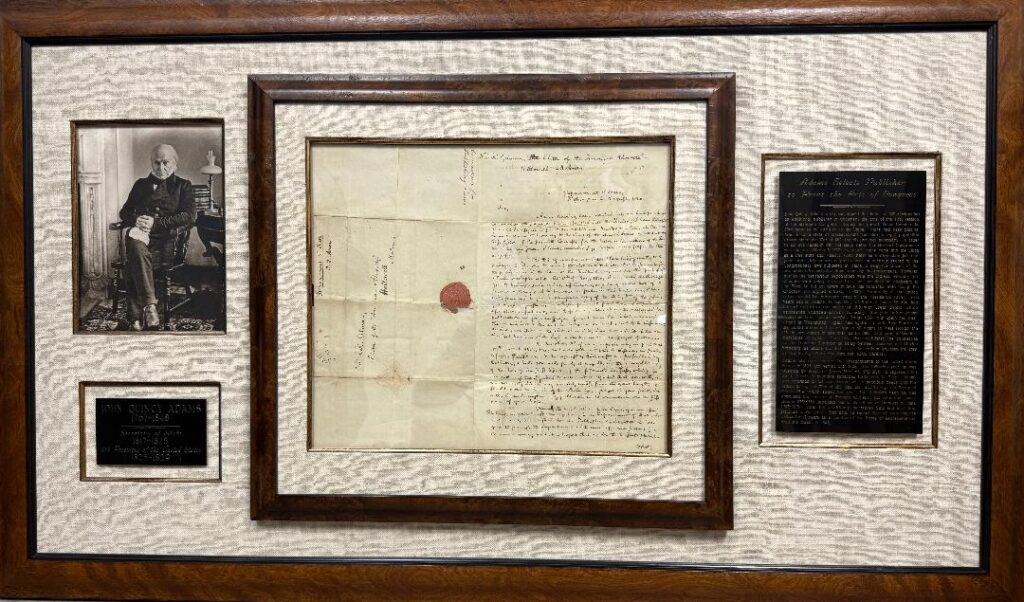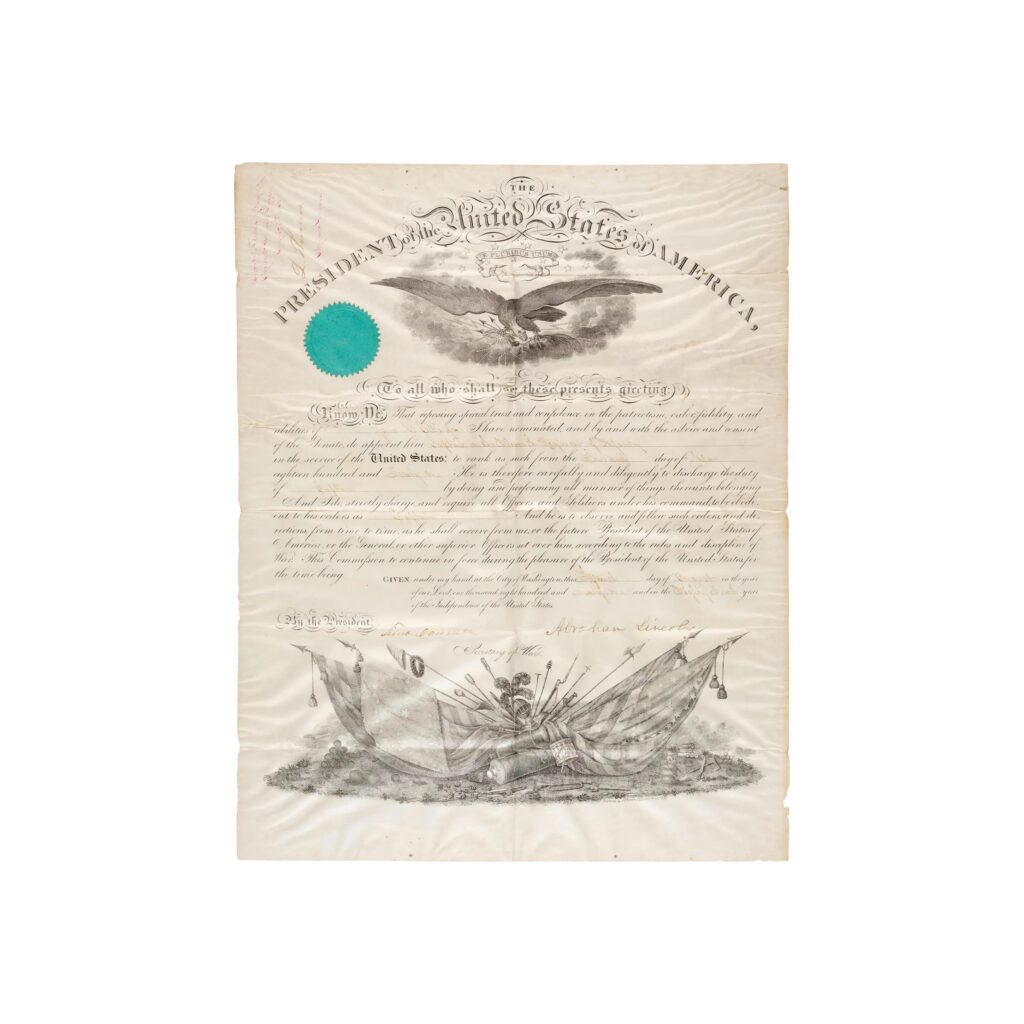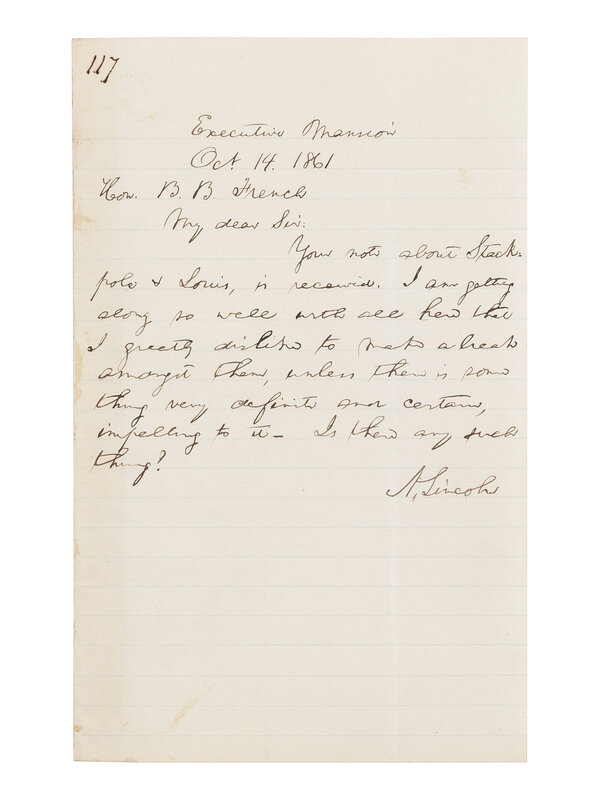HISTORIC HANDWRITTEN LETTER FROM JOHN QUINCY ADAMS REGARDING PUBLISHING THE ACTS OF CONGRESS
John Quincy Adams signed this letter in 1820 designating an additional publisher to document the acts of the first session of Congress. During this period Maine became the 25th state to be admitted to the Union. Maine had been part of Adams’ home state of Massachusetts, but due to rapid population growth since the war of 1812, the division was necessary. In order to achieve harmony with the slave states, the Missouri Compromise was enacted on March 12, 1820, by which Maine came into the Union as a free state and Missouri ( 24th state) as a slave state just one year later. Adams was eager to have an accurate record of the Congressional laws published in Maine to keep the citizens of the state informed of the actions taken by the government. Two years earlier, Adams, as Secretary of State under James Monroe, had helped negotiate the Treaty with Great Britain which established America’s northern boundary.
This particular letter was sent by John Quincy Adams to S.K. Gilman, editor of the American Advocate in Hallowell, Maine. Written as Secretary of State from Washington in 1820 as follows, “Sir, Maine having been erected into an Independent Commonwealth, and, as such, admitted into the Union, I have thought it would be useful to select an additional Newspaper, through the medium of which to promulgate the Laws of the United States enacted at the first session of the 16th Congress, for the better information of the People of the new state. I have,accordingly, chosen your paper for that purpose.
As this appointment takes place subsequently to the passage of An Act To Amend The Act, entitled “An Act to provide for the publication of the laws of the United States, and for other purposes, which was approved on the 11th of May, 1820, I can only authorize you to publish such orders, resolutions, and laws, as are not of a private nature; and to prevent mistakes in this particular, I herewith forward to you a pamphlet copy of the Acts & of the session of Congress in question, in which you will find those of a private description crossed out and those of a public character, designed for publication in your newspaper, scored down the interior margin. The marginal notes of the index are, of course, not to be inserted; and a provision of the Act referred to does not admit of the authorized printing of the Indian Treaties in any newspaper of Maine.
The Act of the 11th of May, repeals only in part, that of the 20th of April 1818; and you will not fail to observe, in publishing the Laws, all the requisites, still in force, prescribed by the latter which you will find, at page 65, in the pamphlet copy of the Acts of the first session of the 15th Congress, which is herewith also transmitted to you. It is expected that you will on no account, divide any one Act, unless, from its great length it should exceed the limits of the whole four pages of your print. The Acts, in each instance of publication, to commence on the first page of your paper.
During the publication of the Laws, you are desired to forward your newspaper regularly to the Department of State. It has, indeed, been usual for the Publishers of the Acts of Congress to furnish the Department with their respective papers for the entire year; and it is hoped that under the present appointment, you will conform to that custom without additional charge, on that account………..
This letter is sumptuously framed with an additional inner frame which opens on a hinge to reveal the verso of the letter and two additional plaques displaying the content of the letter.
An amazing letter introducing the citizens of the new state of Maine to the laws of the United States but shielding them from knowledge of Indian affairs.




